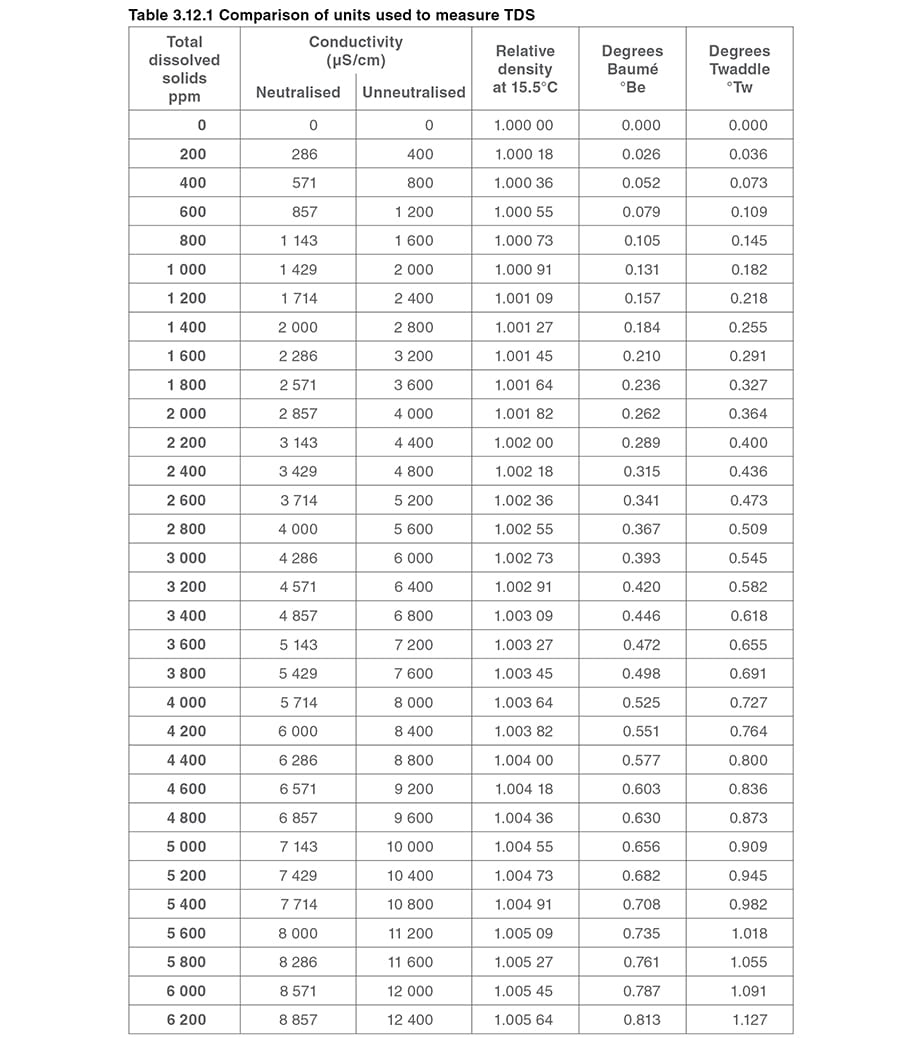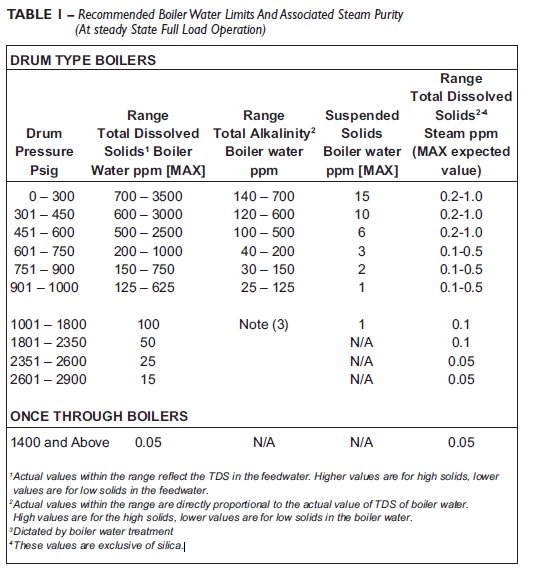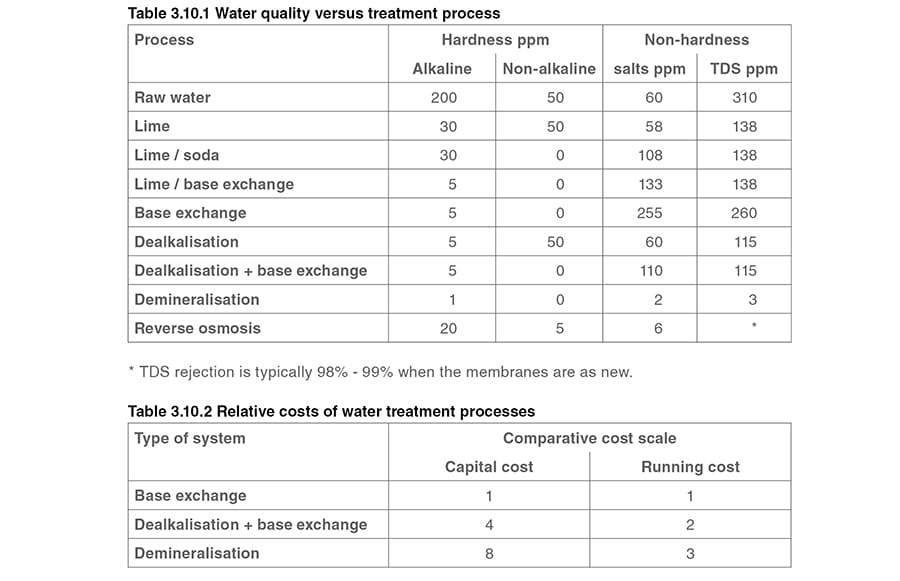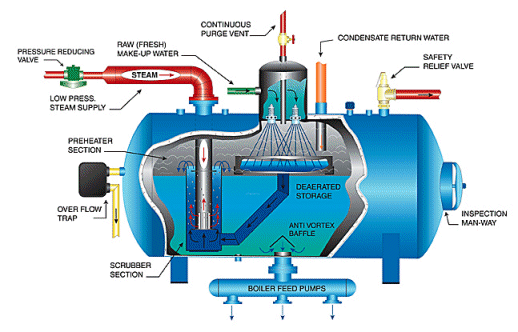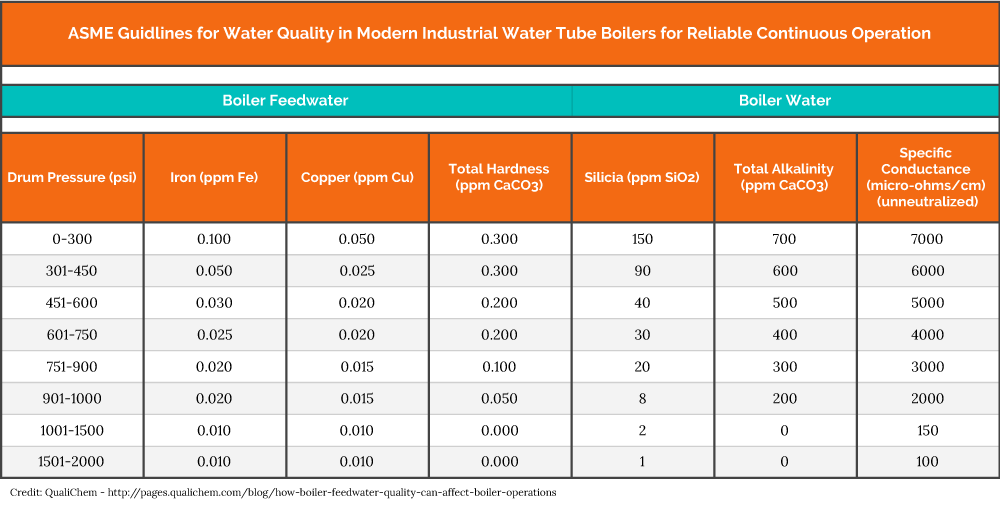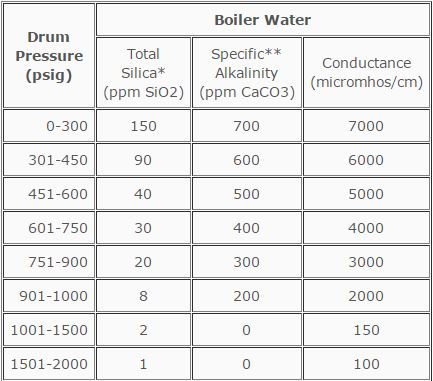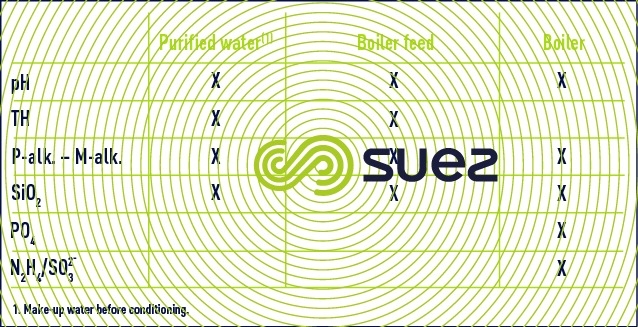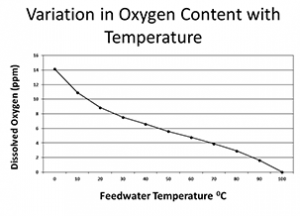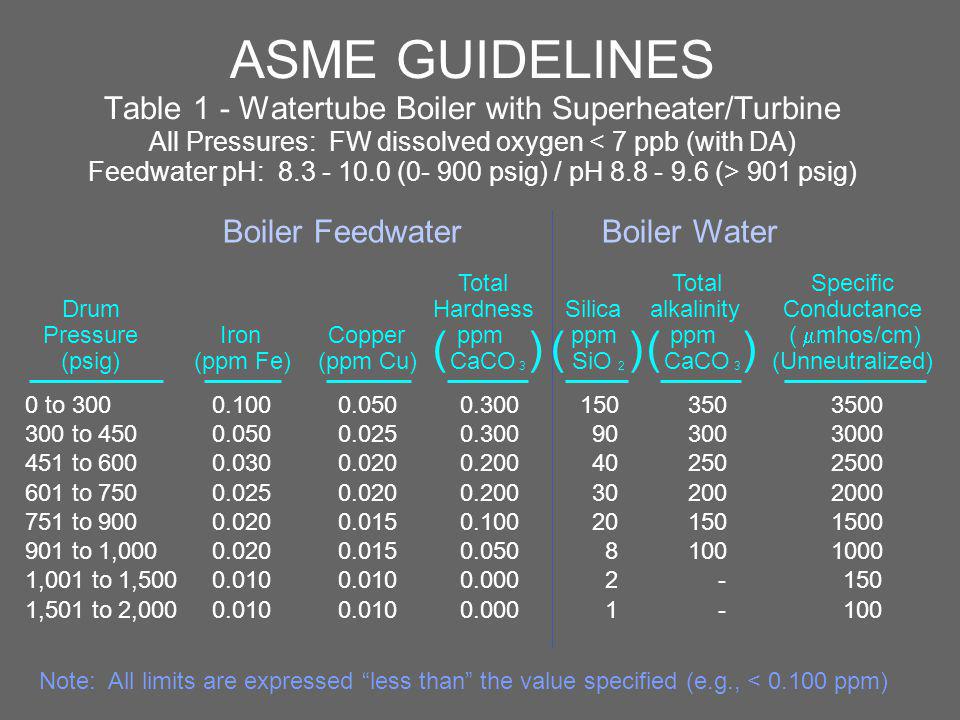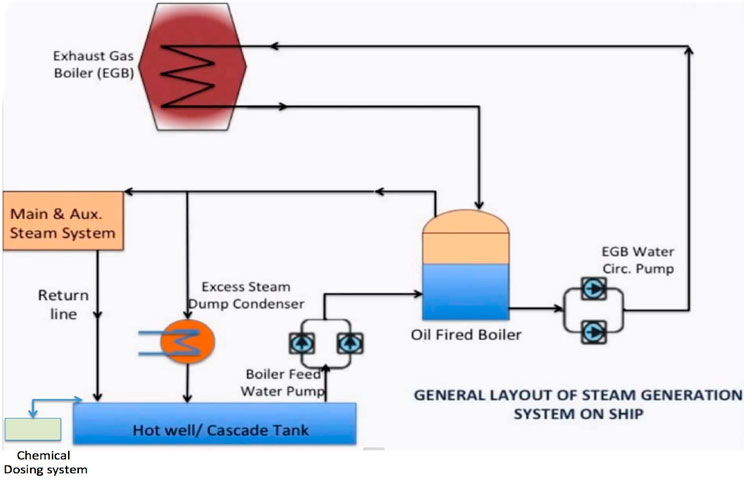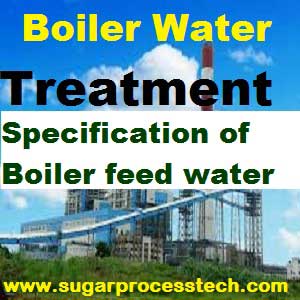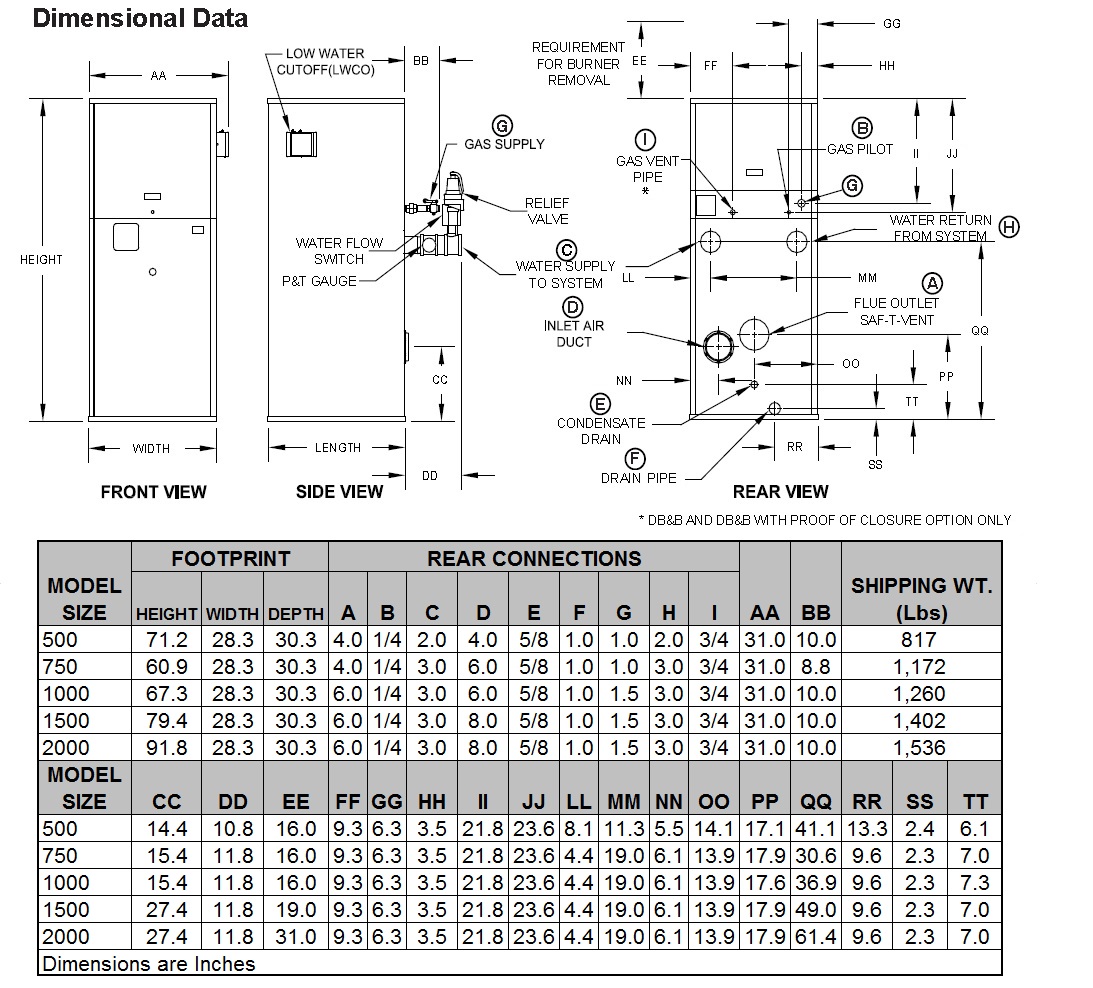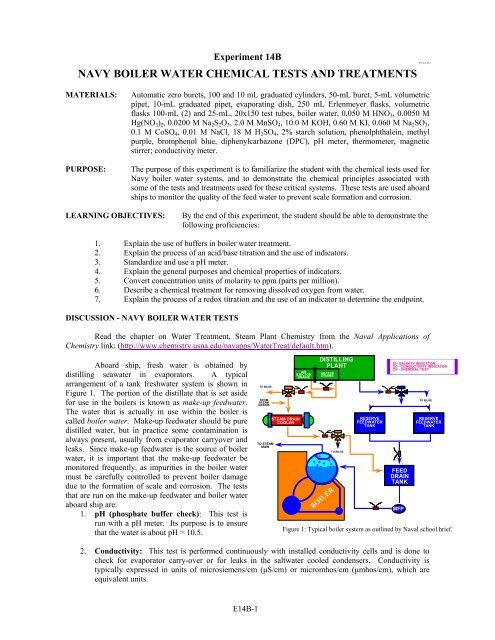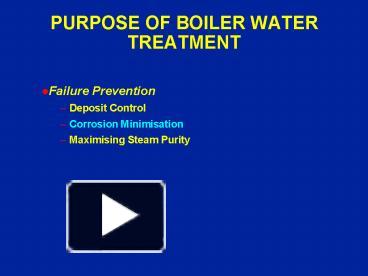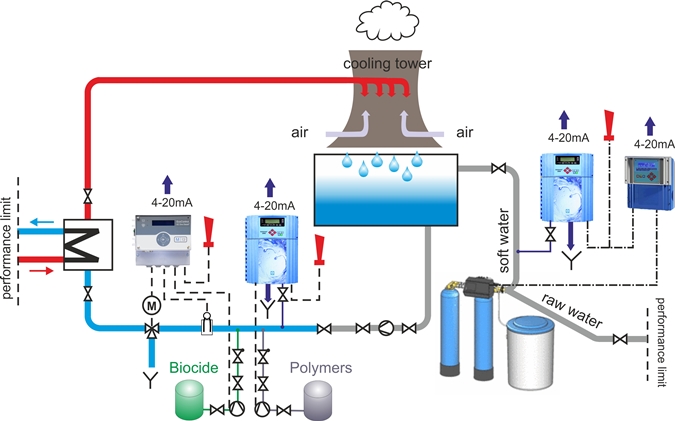Boiler Water Hardness Limit

Small amounts of hardness and iron can get into the boiler.
Boiler water hardness limit. Some impurities such as hardness iron and silica are of more concern for example than sodium salts. Total silica 150 ppm maximum. Asme limits conductivity 7000 umhos neutralized. Conductivity control in the boiler.
Maximum flow velocities in water systems water velocities in pipes and tubes should not exceed certain limits. Scale is a buildup of solid material formed on internal boiler surfaces when the concentration of impurities in the boiler water exceeds their solubility limit and precipitation occurs. 73 control feed of chemicals that prevent scale. Phosphates are used to react with calcium hardness in the boiler water.
An increase in temperature results in an increase in electrical conductivity. Feed water purity is a matter both of quantity of impurities and nature of impurities. Steam boiler rating and feed water temperature boiler output and feed water. Total alkalinity 600 ppm maximum.
Water treatment recommendations vary depending on the operating pressure of the boiler the application steam or hot water and other parameters. This can be written as. A serious loss of boiler efficiency and possibly boiler failure. Presented by cleaver brooks steve connor.
Hardness compounds predominantly calcium and magnesium salts collect on heat transfer. For boiler water the conductivity increases at the rate of approximately 2 of the value at 25 c for every 1 c increase in temperature. Total hardness 1 ppm maximum. It is desirable to keep the concentration of phosphates in the water to 30 50 ppm in order for complete reaction of the phosphates with the calcium hardness entering the.
In order for this reaction to take place it is important to maintain a ph at a minimum value of 9 50. In treated waters alkalinity may also be contributed by hydroxide phosphate silicate and. Iron oxide is of particular concern in today s boiler water treatment programs. Crystals form crystals from scale.
This value will limit the silica content of the steam to 0 25 ppm as a function of selective. Feed water treatment to avoid corrosion make up water to steam boilers should be treated with oxygen scavengers to avoid serious corrosion problems. Alkalinity test in natural waters alkalinity is most commonly the result of bicarbonate and carbonate ions. Deposition from low less than 1 0 ppm hardness boiler feedwater is eliminated with chelant programs and can be reduced by up to 95 by a good polymer phosphate treatment program.
General guidelines to prevent corrosion and scaling in low pressure boilers are as follows. A boiler that makes up 4000 gal day of water having 100 ppm of hardness has a potential of accumulating over 1000 pounds of scale per year.
